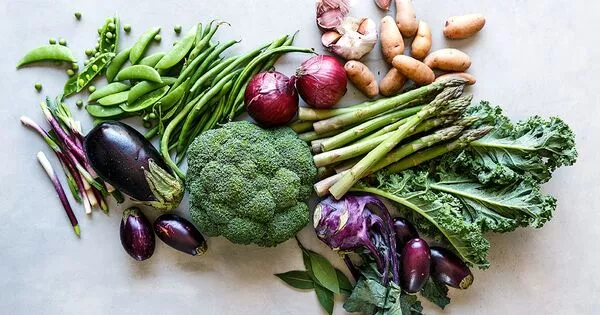The study, which found that simple diet changes can reduce carbon emissions while also improving health, is consistent with a growing body of research on the relationship between dietary choices, sustainability, and human health. According to a new study, making one minor diet modification – chicken instead of beef, plant milk instead of cow’s milk – might drastically reduce carbon emissions while increasing the healthfulness of your diet.
Carbon reduction and improved nutrition may both begin at the dinner table.
According to a new study co-authored by a Tulane University researcher and published in the journal Nature Food, simple substitutions such as switching from beef to chicken or drinking plant-based milk instead of cow’s milk could reduce the average American’s carbon footprint from food by 35% while improving diet quality by 4-10%.
These findings emphasize the possibility of a “small changes” approach, which researchers believe could inspire more consumers to adopt environmentally responsible eating habits. Beef production is a major contributor to the nation’s greenhouse gas emissions, accounting for 25-33% of total emissions.
Our study shows that changing just one ingredient, making one swap, can be a win-win, resulting in meaningful changes in both climate outcomes and how healthy our diets are.
Anna Grummon
“This study shows that cutting dietary carbon emissions is accessible and doesn’t have to be a whole lifestyle change,” said Diego Rose, senior author and nutrition program director at Tulane University School of Public Health and Tropical Medicine. “It can be as simple as ordering a chicken burrito instead of a beef burrito when you go out to eat. When you’re at the grocery store, move your hand one foot over to grab soy or almond milk instead of cow’s milk. That one small change can have a significant impact.”
The study, which examined diet data from over 7,700 Americans, identified commonly consumed meals with the largest climate impact and simulated substituting nutritionally identical, lower-emission alternatives.
“For us, substitutes included swapping a beef burger for a turkey burger, not replacing your steak with a tofu hotdog,” said lead author Anna Grummon, an assistant professor of pediatrics and health policy at Stanford University. “We looked for substitutes that were as similar as possible.”

By choosing foods that are produced with less environmental impact, you contribute to the conservation of biodiversity and ecosystems, reducing the harm to wildlife and natural habitats. The highest expected reductions in emissions were seen in mixed dishes: burritos, pastas, and other popular recipes where a lower-impact protein can easily be substituted for beef.
The study added dietary data for youngsters to previous research. While it may be more effective for an adult to focus on protein swaps, Grummon claims that switching youngsters to plant-based milk can have a “meaningful impact on the carbon footprint” and assist start positive habits at a younger age.
The study’s goal was not to find healthy alternatives to high-carbon diets. Nonetheless, switching to reduced carbon foods resulted in “significant improvements in how healthy the diets were.” While these alternatives are not intended to be a panacea for climate or personal health goals, they do demonstrate that minor changes can have a big impact.
“There is overlap between sustainable diets and healthy diets,” he remarked. “Our study shows that changing just one ingredient, making one swap, can be a win-win, resulting in meaningful changes in both climate outcomes and how healthy our diets are.”
















